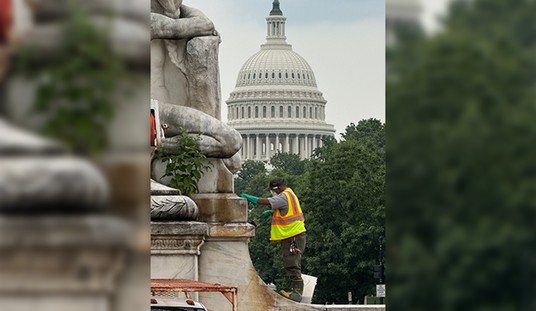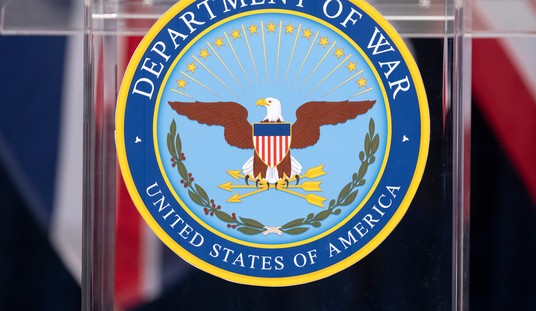
Perhaps no pollster in the nation is more respected on her home turf than Ann Selzer, the Iowa pollster for the Des Moines Register, who among other famous victories broke from the pack to nail Joni Ernst’s margin of victory in 2014. So while the polling averages are generally your best bet, whenever Selzer delivers a new Iowa Caucus poll, it’s worth listening. This morning she released her first DMR/Bloomberg News poll in a month, and it shows Ted Cruz clinging to a 25-22 lead over Donald Trump, with Marco Rubio inching ahead of Ben Carson (who led in Iowa in October) 12-11.
Why is Selzer such a trusted pollster, in an increasingly shaky industry? Because she has a strong track record of doing the hardest and most important thing in polling, predicting who is likely to vote. What does today’s mean? Let’s walk through the quick takeaways:

1. The averages are probably right. The RCP average, updated to include this poll, has Cruz 26.7, Trump 26.2, Rubio 13, Carson 9, Jeb/Paul/Christie bunched between 3.8 and 4.5, Huck/Kasich in the 2s, Fiorina/Santorum in the 1s. Selzer sees Cruz with a slightly larger lead and Carson hanging in there better than the averages, but in both cases by a pretty small margin. This is, right now, a two-horse race for first place, with time running very short for Rubio to make a run.
2. Crazy things can still happen. Looking back at the last two caucuses 19 days out, in 2008, the 1-2 slots were Huckabee and Romney by about their final margins (although Giuliani was still in third at 9.5% and collapsed), while in 2012, Newt Gingrich was first at 26% and Rick Santorum sixth at 6% at this stage, and Santorum won with 24.6% while Newt’s support ended up dropping in half. There were reasons – Newt had a terrible ground organization, some key Christian conservatives (who are already behind Cruz) endorsed Santorum very late, and the caucus was held right after New Year’s Day, so holidays may have screwed with the late polls. But don’t be shocked if the final tally isn’t that similar to even the best polls even this late in the day. Selzer herself has repeatedly warned of the tendency of many Iowa caucus voters to decide very late.
3. Cruz and Rubio are much stronger than the top line looks. When you include first and second choices – a particularly important metric given the dynamics of a caucus, where voters gather and listen to closing sales pitches before casting votes – Cruz is in the running with 48% of caucus-goers, followed by Trump 33, Rubio 28, Carson 19, and nobody else in double digits (Jeb is fifth at 8). In last month’s DMR poll, those numbers were Cruz 51, Trump 35, Carson 27, Rubio 24, Jeb 11. Cruz seems to have peaked a little but is in an extremely strong position to win; Rubio is rising as Carson is plunging, leaving him well-positioned for third and an outside threat for a surprise second. Trump, by contrast, is for real – but very few people are undecided about him.
4. Trump is deeply divisive. No surprise there. Cruz, Rubio and Carson are all very well-liked, with favorable/unfavorable ratings of 76/19 for Cruz, 73/21 for Rubio, 73/22 for Carson (voters have moved on from Carson, but still like the guy). The worst ratings: Kasich 28/43, Jeb 47/50, Paul 45/43, Christie 51/42, and Trump 54/45, with Trump’s fav/unfav balance his worst in this poll since May (by contrast, Cruz and Rubio both have their best fav/unfav Iowa DMR ratings of the campaign). With 45% viewing him unfavorably and half as many voters listing him as a second choice compared to a first, Trump will need to get his committed supporters to the caucus, because he’s not likely to add many more. Nate Silver was at a Trump rally in Iowa last night – it’s a sign of how crazy this year’s polling has been that Silver feels the need to do old-fashioned shoe-leather campaign reporting – and observed the difficulty of predicting Trump turnout:
When a Trump staffer asked our section of the bleachers how many people were “definitively” planning to caucus for Trump, only about three of 60 hands (5 percent) went up. This is a low estimate of Trump’s potential support, however. (The staffer’s question was delivered somewhat uninvitingly, seemingly with the intention of identifying potential precinct captains and deterring those who might not be safe bets to turn out for Trump.) By contrast, when Trump co-chair Tana Goertz asked more warmly from the stage how many people were planning to caucus for Trump, perhaps 35 percent of the hands in the room went up.
64% of Trump supporters in the DMR poll say their mind is made up, compared to 51% of Cruz supporters and 42% overall. 41% say they will definitely not vote for Trump, compared to 18% who say that about Cruz, 24% for Rubio, 27% for Carson (59% will definitely not vote for Kasich, 50% not for Jeb, 48% not for Christie – again, consistent with the general observations that Jeb is hopeless and that Republicans like Kasich less and less the more they see of him). Although interestingly, 9% of those polled say they are voting to “stop Cruz,” but only 5% to “stop Trump.”
Selzer combines the 1st/2d and “ever”/”never” votes into a “Score” that double-weights first choices, and it shows Cruz much further ahead of Trump, and Rubio much closer behind him: Cruz 89.5, Trump 67, Rubio 63, Carson 56, nobody else over 40.
5. Turnout matters. Well, duh. Of Selzer’s poll respondents, 49% definitely intend to caucus, 51% probably will; 29% have never caucused before. It will be up to the campaigns to get them out on February 1.
6. Rubio is running short, but not quite out, of places to find votes. Erick Erickson has reported what he’s hearing from the campaigns’ internal polls:
[M]ore and more polling from multiple campaigns and Super PACs show the same…Trump voters are only going to vote for Trump or Cruz. Cruz voters are only going to vote for Cruz or Trump. They make up more than fifty percent of the vote in Republican primaries around the nation right now.
…I have talked now to several people from several campaigns and super PACs. They have all come to the same conclusion. Trump may not be beatable if he is not beaten in Iowa. One of the managers of a non-Cruz super PAC decided to hold fire against Cruz because his data shows attacking Cruz only helps Trump.
That’s obviously a grim narrative for Rubio, one he will need to turn around with stronger than expected showings in Iowa and New Hampshire. But this poll still has 11% unsure or uncommitted, and another 11% behind Jeb, Christie, Kasich or Fiorina, plus a third 11% behind Carson. If Rubio can siphon off a chunk of each of those three groups, he may still surprise. Harry Enten noted this from Selzer’s press release, which seems to fit the profile of voters who may be more likely to back Rubio than Cruz or Trump:
Indeed, check out this little nugget of those who haven't made up their mind. Suggests Rubio only 13 back may rise. pic.twitter.com/hLh5k6TWpc
— Harry Enten (@ForecasterEnten) January 13, 2016
On the other hand, with only 21% of those polled viewing Rubio unfavorably and 24% saying they definitely would not vote for him – numbers suspiciously similar to the 22% who back Trump – we should consider that perhaps the florid online rage at Rubio over the Gang of 8 immigration bill is not as widely shared among the primary/caucus electorate as it appears on Twitter and in internet comments sections.
6. Cruz’s refusal to attack Trump has helped him so far. 75% of caucusgoers said they liked that he has not gone after Trump. Of course, the gloves came off yesterday after Trump stepped up the “birther” attacks on Cruz’s Canadian birth, and as we have seen in the past (think Howard Dean and Dick Gephardt in 2004), a big fight can damage both sides (Cruz is also going very heavy against Rubio on immigration right now, as is Jeb; we’ll see if any of that dents Rubio’s or Cruz’s sky-high favorables in Iowa). By contrast, only 35% were attracted to Cruz wanting to phase out the Renewable Fuels Standard mandate.
Interestingly, 24% of Cruz supporters and 18% of Trump supporters described their candidate as “establishment”. But 48% of poll respondents said it was important or crucial that their candidate disrupt government as usual, and of the two, voters overwhelmingly picked Trump over Cruz as the more disruptive force, 71-14. 15% of respondents said they were concerned by Cruz being born in Canada.
7. National Security matters. 79% listed it as a top concern, even beating the 72% who cited the economy and 47% who said social issues. (If there’s one disappointing omission in this poll, it’s that Selzer didn’t ask about immigration at all).













Join the conversation as a VIP Member